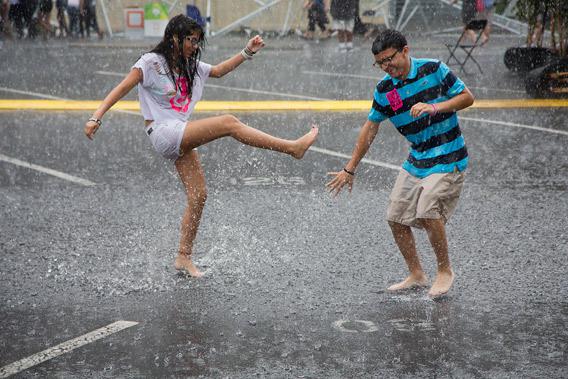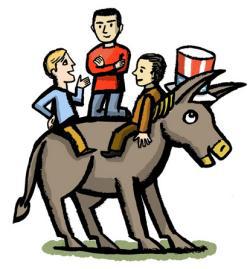Hey guys,
A writer for the New Yorker tweeted yesterday afternoon that “Charlotte is kind of pretty,” so I figure we’re already in uncharted cultural territory for the week. I think you both are asking all the right big-picture questions about the durability of Obamania. But as the resident political technician, I’ve spent my long holiday weekend in Charlotte wondering if the mode of political storytelling has changed.
That’s a suspicion I developed by the end of last week in Tampa. For all we should be rightfully sick of consultants and pundits using the word narrative, the Republican convention was befuddlingly free of plot. The major speakers seemed to all make discrete, disjointed arguments, without any overarching themes or recurring language.
We’re supposed to be learning about Romney’s humanity, but most of the big speakers are not even able to testify to it—and so talk instead about their own journeys and accomplishments? The keynote speaker devotes his time on stage to explaining why the central test for today’s leaders is making difficult decisions around benefits and entitlements—and then the party’s presidential and vice-presidential nominees barely touch on the subject?

Richard Kalvar / Magnum Photos for Slate.
Late Thursday night, a couple of hours after the Eastwood/Rubio/Romney triple bill, I found myself in a conversation with a Republican operative who has spent time in the Romney orbit. I asked what he thought of the speech, and he said he thought it went really well. He asked what I thought, and I said it was probably the finest presentation, the best delivery I’d ever seen from Romney. Then I asked him: So what was the speech about? He looked at me, perplexed, and asked, “What do you mean, ‘What was it about?’ ”
In fact, the week was so incoherent that I have trouble imagining it reflects inattention on the part of Romney’s team as much as a new paradigm for thinking about how information travels. We got into all this talk about “narrative” in campaigns because political communicators were thinking about how to package a single, consolidated story that would rhyme across mass media: the sound bites picked out for the nightly news would ratify accounts in the morning paper and guide word of mouth.
Now coverage is as likely to move through niche media or be consumed as raw, if edited, material online. What if that means that convention planners think of it less as a weeklong storytelling exercise and more as a project in which they generate discrete bits of content able to exist alone? That Christie riff on austerity, a Romney putdown of Obama’s messianic ways, an inspiring immigrant Bildungsroman from Rubio—they don’t need to fit together, they just need to each develop a momentum and audience of their own.
All this brings us to Day 1 in Charlotte. It’s Obama and the Democrats who’ve been accused most of the year of administering a fragmented campaign, talking to women about their uteruses and white guys in the Midwest about their assembly lines. So I will be curious to see if these three days add up to one big argument for Obama’s re-election, or lots of little ones allowed to stand on their own.
Sasha
Read the rest of Slate’s coverage of the Democratic National Convention.
